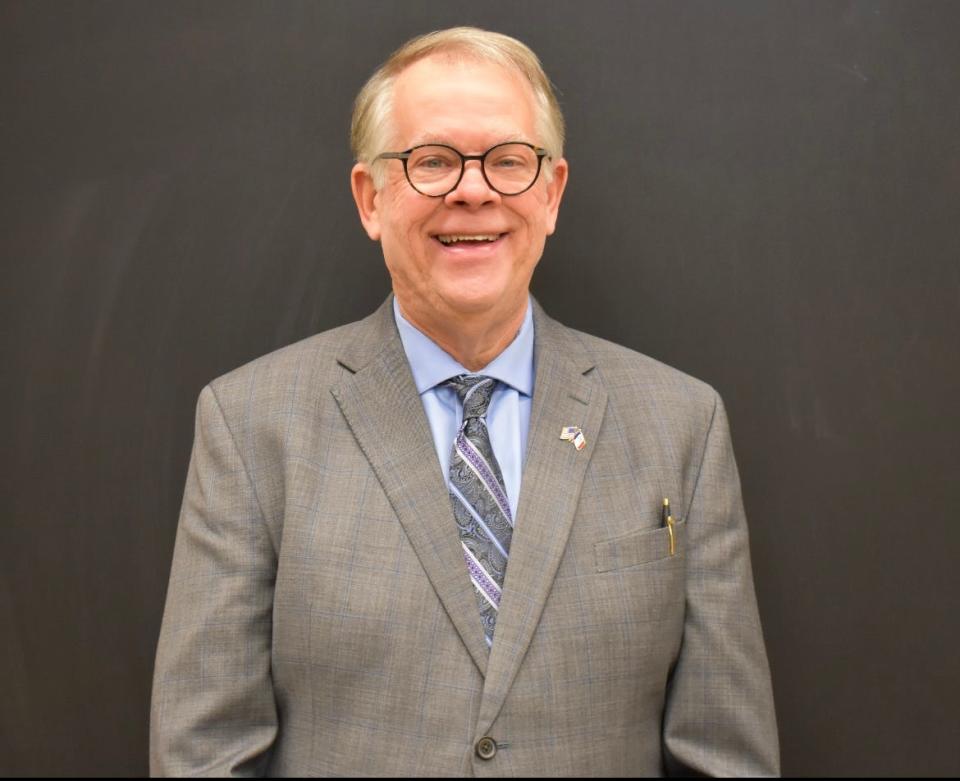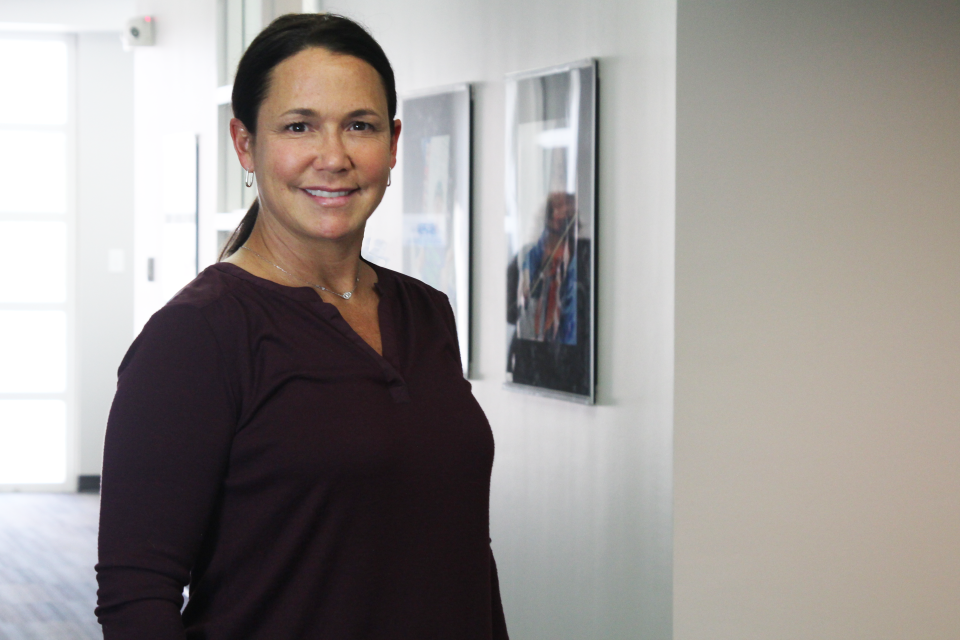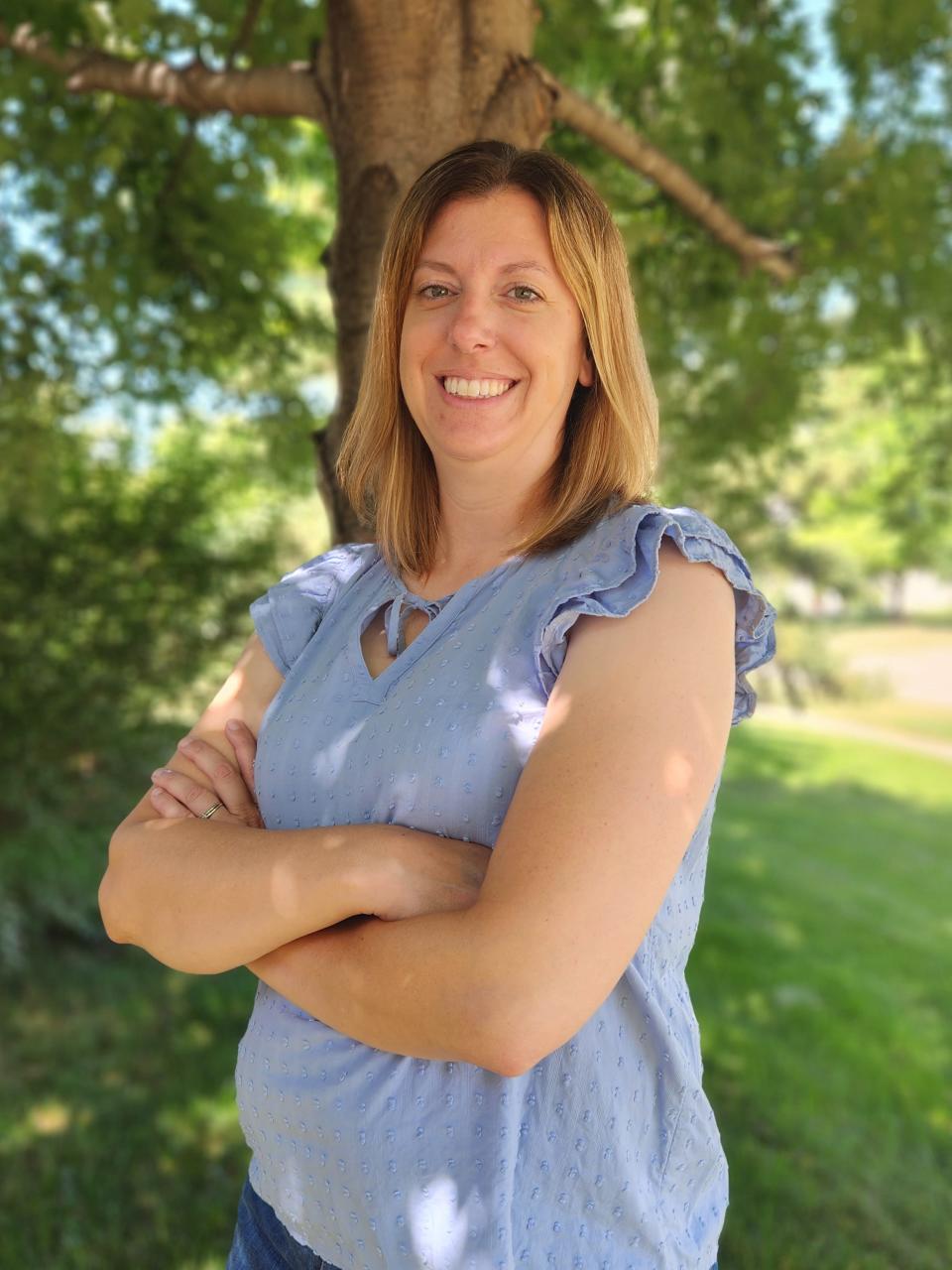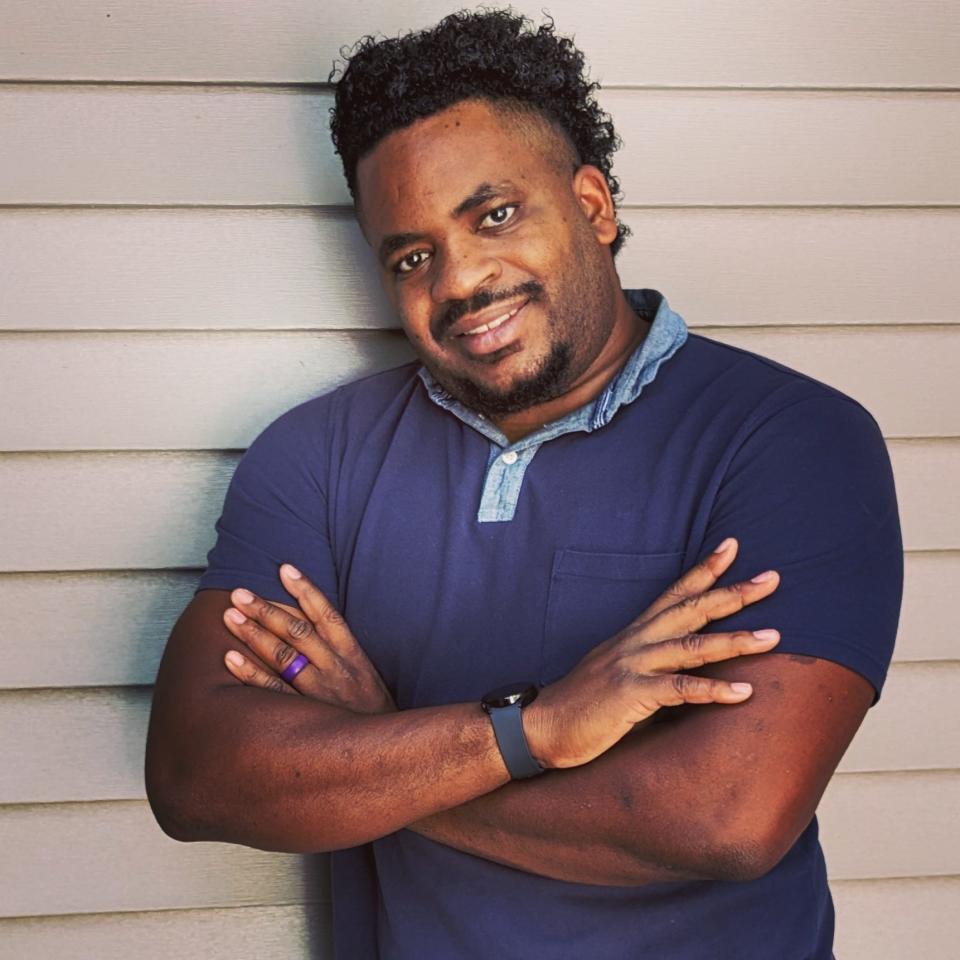Meet the eight candidates running for West Des Moines School Board in 2023
Eight candidates are running for four at-large seats on the West Des Moines School Board, including Michael Andreski, Laurie Beilstein, incumbent Jeff Hicks, incumbent Jill Caton Johnson, Elizabeth Larson, Teri Patrick, Aaron Sewell and Scott White.
The Des Moines Register asked each candidate to respond to questions on why they're running and the issues their district is facing. Their answers may be lightly edited for clarity or length.
The election is Nov. 7.
Michael Andreski

AGE: 63
GREW UP: Des Moines and Clive
CURRENT HOME: West Des Moines
EDUCATION: Bachelor of Science in pharmacy, University of Iowa; Master of Business Administration, Florida Southern College; M Jurisprudence, Drake University; Ph.D. pharmaceutical socioeconomics, University of Iowa
POLITICAL EXPERIENCE: West Des Moines Community Schools Foundation, board member; primary candidate, Iowa House of Representatives, spring 2022; 45 years of county political committee work in Iowa and Florida. Advocacy work for American Association of Colleges of Pharmacy, American Pharmacy Association, Iowa Pharmacy Association
Laurie Beilstein

AGE: 52
GREW UP: West Des Moines
CURRENT HOME: West Des Moines
EDUCATION: Juris Doctor, Chicago Kent College of Law; bachelor's in communications, international business, University of Iowa
POLITICAL EXPERIENCE: No paid or elected political offices; Youth mentor and leader at Lutheran Church of Hope for past eight years
Jeff Hicks (incumbent)

AGE: 47
GREW UP: Knoxville
CURRENT HOME: West Des Moines
EDUCATION: Bachelor of Science, U.S. Air Force Academy; Master of Public Administration, University of Maryland; Juris Doctor, Drake University Law School
POLITICAL EXPERIENCE: West Des Moines School Board, 2019 – present
Jill Caton Johnson (incumbent)

AGE: 51
GREW UP: Spencer
CURRENT HOME: West Des Moines
EDUCATION: Ph.D. curriculum and instruction: literacy education, The University of Minnesota; Master of Arts in early childhood education, University of Iowa; Bachelor of Arts elementary education, University of Iowa
POLITICAL EXPERIENCE: West Des Moines School Board, September 2015-present; United Way Education Cabinet, 2011-2016
Elizabeth Larson

AGE: 40
GREW UP: Bettendorf
CURRENT HOME: Clive
EDUCATION: Master of education, Iowa State University; Bachelor of Science in business management, Iowa State University
POLITICAL EXPERIENCE: I have spent hundreds of hours volunteering in West Des Moines schools including being a member of the School Improvement Advisory Committee, the Community Education Advisory Council, and leading the parent groups at my children’s elementary and junior high schools.
Teri Patrick

AGE: 51
GREW UP: Cedar Rapids
CURRENT HOME: Clive
EDUCATION: Master of Business Administration, Drake University
POLITICAL EXPERIENCE: None
Aaron Sewell

AGE: 34
GREW UP: Kansas City, Missouri
CURRENT HOME: West Des Moines
EDUCATION: Bachelor of Science in political science, Simpson College; Bachelor of Science in elementary education, Iowa State University
POLITICAL EXPERIENCE: West Des Moines Parks and Recreation Commissioner, 2015, 2019; West Des Moines Community School Board candidate, 2021
Scott White
Photo not provided.
AGE: 71
GREW UP: Goshen, Indiana
CURRENT HOME: Clive
EDUCATION: Bachelor of Science in business administration, Indiana University
POLITICAL EXPERIENCE: No prior political experience
More: Election Day in Iowa is approaching. Your guide on Des Moines metro candidates, issues
Why are you running?
Michael Andreski: I am running for the WDM school board because I believe in public education. As a Valley High alumni and parent of a Valley alum, I’ve seen the life-changing effects of the education that students receive in the WDM schools. I was well prepared for the rigors of a health professional program, and I will work to ensure that the high level of excellence in our schools continues. Our schools are a wonderful reflection of the increasing diversity in the WDM school district, and I want to support the work being done to make all students feel valued.
Laurie Beilstein: Restore WDM to an academic center of excellence for all students to develop the essential skills needed to navigate a changing 21st-century workforce and world economy.
Jeff Hicks: Serving on the school board has allowed me the opportunity to give back to my community in a way that aligns well with my background, experience, and demeanor. I believe a strong public education system has historically been the backbone of our country and this gives me a chance to play a small role in helping ensure all students have access to a high-quality education.
Jill Caton Johnson: I am an advocate for quality and accessible public education. As an education professor, I have the professional skills to help WDMCS navigate these changing educational times. As a 24-year resident of West Des Moines, a former WDMCS teacher and a parent of two Valley High School graduates, I am invested in the success of West Des Moines Schools. I look forward to supporting teachers and staff in raising academic achievement, improving collaboration and trust across the district, and creating positive and safe learning spaces for all kids.
Elizabeth Larson: I am running for School Board for the kids. As a School Board member, I will ensure that WDMCS’ public education provides opportunities to every student we serve. We know that students learn best when they feel safe and know they belong. We know that seeing themselves in the curriculum is one of the best ways to engage students in the learning materials. We need to not only continue to identify areas where we are not meeting these needs and address them but proactively be seeking ways to improve the educational experience of every single child in our district.
Teri Patrick: I am running for West Des Moines School Board because I believe in investing in the next generation. Every student possesses the capacity for greatness, and with the appropriate guidance, support and opportunities, their achievements can surpass even their own expectations. My commitment is to empower students for success. I envision a West Des Moines district education that prioritizes academic excellence, a safe environment for learning, and encourages parental partnership, ensuring students are not only positioned for success but also inspired to reach their full potential.
Aaron Sewell: For the kids. I want to help students and families feel like they have a future. More than just hope. We have been fighting the academic achievement gap for so long and having an experienced public school teacher and current parent of a West Des Moines Schools student can only be a positive to get every student closer to that brighter future they deserve.
Scott White: My primary responsibility to the district will be to restore traditional values and discipline to the curriculum and instruction for all our students. Fundamentals are the key. Only students equipped with such knowledge developed in grades K-12 will go on to be engaged citizens in an increasingly multicultural world.
More: Who is running for Des Moines suburban city councils, mayor in the 2023 election
What is the most pressing issue facing the school district and how would you address it?
Michael Andreski: The challenge of maintaining the traditional excellence of the educational experience for an increasingly diverse student population. This is even more difficult due to the funding cuts from the state of Iowa due to the “Students First Act.” Funding will also impact the constant challenges to the ability of many of our students to be comfortable in the learning environment. In the next few years, all expenses will need to be examined to determine the impact on the learning environment and focus resources on the spending that most enhances that environment.
Laurie Beilstein: Core academics: Post-secondary preparedness is 51%. Create a parent, teacher and administrator task force to develop a classical liberal arts curriculum with defined success criteria.
Jeff Hicks: One pressing issue is overcoming the impact of the pandemic on our students’ academic progress and mental health. COVID was especially impactful on our most vulnerable students. We’ll continue to focus on three things. First, attendance at school is critical. Students need to feel welcomed and that they belong at school. Second, we must ensure our students’ basic social and emotional needs are being met. Without that, we can’t expect our students to be in mindset receptive to learning. And finally, we need a strong core academic instructional program that challenges our students and brings out the best in them.
Jill Caton Johnson: Academic achievement is the most pressing issue in WDMCS. As a board member, I will support curriculum administration to use data and specifically address areas of low achievement. We also need to support students who are on the high side of achievement. All kids deserve academic growth. I will also advocate for resources and professional learning for teachers and associates so they can meet the needs of each of their students.
Elizabeth Larson: The most pressing issue facing WDMCS is the mental health crisis driven by significant increases in anxiety and depression. With state funding lagging behind inflation, schools are being forced to choose between addressing these mental health challenges and current programming. To address these mental health concerns, we must create a safe and welcoming environment at school for our students. We need to create a culture of inclusivity and seek expert assistance to meet the mental health needs in our district. Finally, the district needs to be more intentional in pursuing outside funding to address mental health concerns in our district.
Teri Patrick: One of the most pressing concerns in our district is academic proficiency. Looking at district proficiency rates in English/language arts and mathematics, there is room for improvement. The district scores are 72.91% and 67.51% respectively, with one elementary school scoring in the mid-50% proficiency. Despite a 95.8% graduation rate, the post-secondary readiness index composite score is 51.31%. We must focus on literacy and math, the foundation of all learning, and find innovative strategies that enable us to meet students at their current level and provide the support to facilitate their meeting proficiency standards.
Aaron Sewell: Academics took a big hit when COVID took over. Our students and schools are rebounding slowly but we need to remember there have been academic challenges before COVID. Students need structured education that will challenge them and instill core skills to grow as learners. They also need to feel safe and welcome in their environment. Teachers need to feel supported across the district so that they can serve our kids to the best of their abilities.
Scott White: Accountability to and from all district stakeholders will be my top priority. I will analyze each policy at the granular level. My guiding principle will be to get the best outcomes for our students while always recognizing our fiscal responsibility to our taxpayers. As such, demanding accountability, focusing particularly on the administrative level, will be an ongoing continuous process.
How would you balance the needs of students and staff while complying with a new state law, Senate File 496, that restricts certain books and LGBTQ instruction for certain grades?
Michael Andreski: While it is appropriate to follow the law as much as possible, the way that this law is written makes it impossible for both students and staff to comply with the law and to respect the autonomy of students and staff. The requirement for and definition of “age appropriate” is vague except for banning descriptions or visual depictions of a sex act as defined in the Iowa Code. The ban on providing any age-appropriate information on gender identification and sexual orientation flies in the face of the realities of the lives of many of the students and staff.
Laurie Beilstein: I support freedom of speech; censorship is wrong. Common sense and reasonableness are needed when discussing this issue, or it becomes a political football dividing us.
Jeff Hicks: As we enact policy designed to comply with SF 496, I’m focused on two things. First, how can we minimize the harm this legislation has caused to some of our families and students? We do that, in part, by working with our families to understand where support is needed and to ensure that every student feels welcomed. Second, we design policies that are clear and can be operationally implemented in each building. It’s important that we minimize the distraction and risk for our teachers and administrators so that they can remain focused on teaching and caring for our students.
Jill Caton Johnson: 1) Support teachers with changing laws — make informed decisions knowing consequences and challenges facing teachers without much support/direction from the Department of Education. 2) Improve culture and climate so all students feel a sense of belonging and see they belong and are valued in WDMCS. 3) Comply with laws as directed by legal counsel. 4) Continue to speak from a stance of inclusivity. 5) Advocate and be an ally for LGBTQIA students and families.
Elizabeth Larson: The best way to balance the needs of students and staff while complying with Senate File 496 is to follow the law as narrowly as possible. We must comply with the law in order to protect our staff from dire consequences. However, in order to limit the harm as much as possible, we must not do one thing more than what is spelled out. Unfortunately, until Senate File 496 is overturned, our state Legislature has stripped school boards of the local control that used to be so highly valued in Iowa.
Teri Patrick: As a school board member, it is my responsibility to ensure our school district adheres to the laws surrounding SF496. I firmly believe in the importance of exposing our students to a diverse range of authors and books, all of which I believe can be selected in accordance with the legal requirements. My commitment is to promote academic excellence and provide our students with the highest quality education possible.
Aaron Sewell: Teachers and staff are constantly navigating obstacles thrown at them. It's a constant in our profession, and we do it anyway because of the passion we have to make the lives of our students better. We as public school teachers are not new to the challenge of navigating curriculum or literature restrictions. Clear communication from administration and families in conjunction with educator input can go a long way to understanding educational goals. The biggest thing we can give students as teachers and families is time. Listen to them, let them share themselves and support them.
Scott White: While bans on books should always be considered a last-step measure, sometimes they are required from both a legal and moral perspective. Certain well-publicized works with sexually graphic illustrations and vulgar language must be pulled from our district libraries. There is still much literature available to our students that will excite their imagination as well as increase their understanding and respect of people from diverse backgrounds.
More: Des Moines suburban school boards gear up for elections on Nov. 7. Here's who is running:
In recent years, Des Moines metro school districts have seen their enrollment numbers steadily increase. What can the district and board do to manage future student growth?
Michael Andreski: The first step is to work in collaboration with the municipal governments within the district to have as accurate projections of future growth as is possible. As those projections change over time, the school district will need to be as flexible as possible in their planning. 10-year plans are not realistic in 2023, needs assessments will need to be conducted as frequently as yearly, and plans adjusted to reflect the evolving needs of the district.
Laurie Beilstein: If we don’t fix our lackluster proficiency rates, growth won’t be an issue. School choice will meet the demand for academic excellence.
Jeff Hicks: Our district is fairly land-locked, we simply won’t have the same growth as communities like Waukee and Ankeny. Schools with declining growth inevitably face budget challenges. To combat that, we must be the open-enrollment school of choice. We aren’t perfect, no district is. But we continue to invest in our district, have a supportive community, a broad offering of academic, athletic and art programs, and teachers and staff that are second to none. Coupled with a diverse student body that reflects the nation our graduates will help lead, I’m confident we’ll remain a district that families seek to join.
Jill Caton Johnson: WDMCS will continue to welcome families to our district. Growth will need to match space available in our schools and programs. We have made some facility improvements in elementary and junior highs that could allow us to accommodate growth in enrollment. Discussions will need to happen regarding extra-curricular supports as student numbers increase. We will also need to be mindful of keeping within our current board-mandated class capacity limits. Attracting and retaining teachers will continue to be an area to address with a growing enrollment.
Elizabeth Larson: WDMCS has not seen the growth of other metro districts because our attendance areas are well-developed. Stagnant growth has created its own problems with the state’s increases in per pupil funding not being enough to cover the cost of inflation. This puts WDMCS in the position of needing to make cuts to afford the increasing costs of everything else. To maintain academic excellence and continue to provide our students with extensive opportunities, the district must seek outside support like community grant opportunities and maintain excellence in education that attracts students from around the metro to open enrollment.
Aaron Sewell: Districts are currently monitoring how the new law giving more freedom to the creation of charter schools will affect growth in the suburban districts long term. So far it's been a minimal effect but here in West Des Moines it still is something to keep an eye on as we grow as a community. Our public schools welcome every child through our doors and make every effort to help them achieve academically. We must continue to look at the potential for adding to our school facilities to make sure they can effectively handle student influxes. Closing campuses or facilities does not seem feasible long term.
Teri Patrick: Upon reviewing the historical enrollment data for the West Des Moines School District, we have been experiencing an increase in students open enrolling, but we are also seeing a decline in enrollment particularly among our resident students. This decline raises concerns. I believe we need to understand the reason students and their families are choosing to leave the district. Our goal should not only be to retain our current students but also to enhance the district to make it the preferred choice for the families in our community.
Scott White: From 2016-2017 to 2022-2023, certified enrollment in the West Des Moines School District has increased 1.166%, which suggests that district enrollment has been pretty stable. District enrollment projections indicate no looming increases over the next several years. Although that could change, I believe the district is well prepared to manage potential future student growth, should it materialize.
This article originally appeared on Des Moines Register: Eight candidates are running for West Des Moines School Board in 2023

